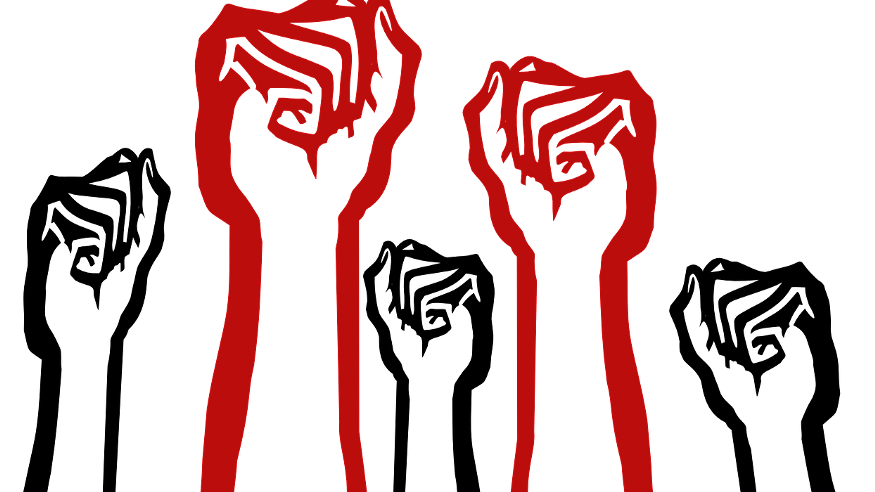
by Shaun Chamberlin | Apr 5, 2019 | All Posts, Climate Change, Cultural stories, Philosophy, Politics
Sometimes, like Kant, I'm moved to write by reading something I so profoundly disagree with. Tonight, curiously, I'm moved by a wish for a little less disagreement.
Reading Jeremy Lent's excellent post What Will You Say To Your Grandchildren? and seeing it so passionately take issue with Jem Bendell's "dangerously flawed" calls for Deep Adaptation, I just felt deep solidarity with both.
I left a comment on Jeremy's piece, then thought I'd expand it a little and post it here too, because, in truth, vigorously debating the question of whether it's all too late is not where I want to see these two outstanding gentlemen spend their potency.
The more critical question - I believe they would both agree - is what to do in these times. And, counter-intuitively and doubtless controversially, I've come to believe that the answer to the first question isn't necessarily central to that. Wendell Berry's words bear repeating:
“Protest that endures, I think, is moved by a hope far more modest than that of public success, namely, the hope of preserving qualities in one’s own heart and spirit that would be destroyed by acquiescence.”
For me, standing in resistance to the system driving mass extinction is not dependent on knowing - or even believing - we might succeed.
I know Jem's a fan of this piece I wrote six years ago about my painful grappling with 'is it all too late?':
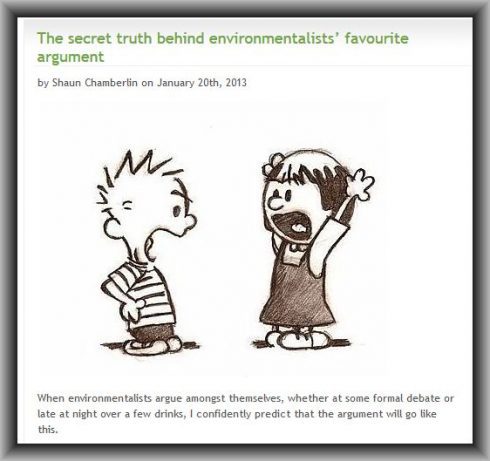 And yet there I was in Parliament Square on Hallowe'en when we declared rebellion against the UK government, and accordingly getting arrested for the first time in my life 14 days later. The next day I stood on Blackfriars Bridge and gave a speech to my fellow rebels about my experience in jail, but also about the fact that I believe it's all too late, and how I relate to that.
Many have come to thank me since, for not being afraid to voice that dark truth, and for sharing a vitalising way forward for those who share that belief.
The whole day was so profoundly nourishing, and while I don't intend or expect to have grandchildren - I have enough on my plate trying to ensure the safety of the children already on the Earth - it would be a rich pleasure to tell the tale to yours:
https://vimeo.com/301399993
Of course, in the months since, just as Roger Hallam and others predicted, those 100+ arrests garnered headlines that helped launch a global movement in a world sick and terrified of the future we're creating.
Does that change my belief that it's all too late? No.
But does that belief in any way undermine the joy and delight I feel at telling a story with my life that I'm proud to tell?
Not one bit!
And I'll be proud, grateful and emboldened to know that when I take my stand this month, I'm shoulder-to-shoulder with authentic and impassioned folk like Jeremy and Jem.
And yet there I was in Parliament Square on Hallowe'en when we declared rebellion against the UK government, and accordingly getting arrested for the first time in my life 14 days later. The next day I stood on Blackfriars Bridge and gave a speech to my fellow rebels about my experience in jail, but also about the fact that I believe it's all too late, and how I relate to that.
Many have come to thank me since, for not being afraid to voice that dark truth, and for sharing a vitalising way forward for those who share that belief.
The whole day was so profoundly nourishing, and while I don't intend or expect to have grandchildren - I have enough on my plate trying to ensure the safety of the children already on the Earth - it would be a rich pleasure to tell the tale to yours:
https://vimeo.com/301399993
Of course, in the months since, just as Roger Hallam and others predicted, those 100+ arrests garnered headlines that helped launch a global movement in a world sick and terrified of the future we're creating.
Does that change my belief that it's all too late? No.
But does that belief in any way undermine the joy and delight I feel at telling a story with my life that I'm proud to tell?
Not one bit!
And I'll be proud, grateful and emboldened to know that when I take my stand this month, I'm shoulder-to-shoulder with authentic and impassioned folk like Jeremy and Jem.
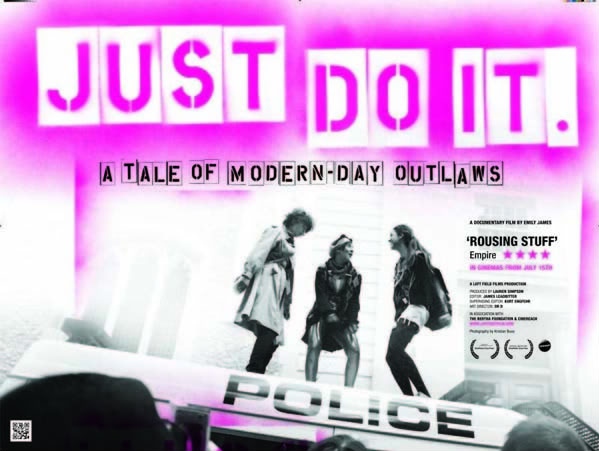
by Shaun Chamberlin | Jun 15, 2011 | All Posts, Climate Change, Cultural stories, Favourite posts, Philosophy, Transition Movement
Last night I went to the première screening of an excellent new film called Just Do It. It's a record of the direct action climate movement - Climate Camp, Plane Stupid et al. - made with the full cooperation of the activists, and it's worth checking out, especially if you've never been directly involved yourself.
It is a story of people responding to the threat to their future with courage, determination, humour and camaraderie. It's also a film that I remember existing only as a flyer, asking whether we would like to see a truly independent film developed outside mainstream production models and distributed for free. Hundreds of us donated, and I was keen to see the result.
After the screening, there was a Q&A session with the director, Emily James, but I found myself sitting there with a question in my head that was prompted by the film, but was refusing to form itself into anything concise and coherent. It was connected with that dreaded thought that everyone involved with any form of heartfelt climate action knows only too well - but what if it's all too late?
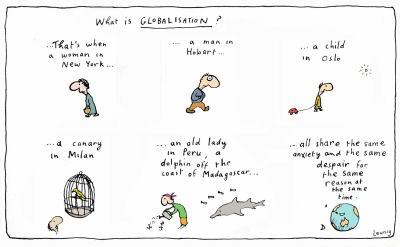 Let me explain. The footage in the film is from 2009 - the buildup to the Copenhagen climate conference in December of that year. It briefly reminds its audience of all the climate science that was marshalled back then to make clear that this was our last hope at curbing emissions to prevent the climate system hurtling off into unstoppable destabilisation. And then, of course, it reminds us of the abject failure this grand conference produced...
One of the most affecting moments in the film was the close-up on one inspiring activist's face as she is asked "but does all this actually achieve anything?" She searches her mind, begins to speak, hesitates, starts again, and stops. Then her eyes seem to look into her heart and soul, and maybe even to shy away from some of the things they see there, before, as I remember, she settles upon "well, it's better than doing nothing".
To me, it was a sad moment, and a question that seemed unresolved, even as the film ended by reminding us that the Heathrow runway expansion has been cancelled, that the Kingsnorth coal power plant plans have been scrapped, and that projects like the exciting Transition Heathrow are growing up where only tarmac and fumes would otherwise have been.
Let me explain. The footage in the film is from 2009 - the buildup to the Copenhagen climate conference in December of that year. It briefly reminds its audience of all the climate science that was marshalled back then to make clear that this was our last hope at curbing emissions to prevent the climate system hurtling off into unstoppable destabilisation. And then, of course, it reminds us of the abject failure this grand conference produced...
One of the most affecting moments in the film was the close-up on one inspiring activist's face as she is asked "but does all this actually achieve anything?" She searches her mind, begins to speak, hesitates, starts again, and stops. Then her eyes seem to look into her heart and soul, and maybe even to shy away from some of the things they see there, before, as I remember, she settles upon "well, it's better than doing nothing".
To me, it was a sad moment, and a question that seemed unresolved, even as the film ended by reminding us that the Heathrow runway expansion has been cancelled, that the Kingsnorth coal power plant plans have been scrapped, and that projects like the exciting Transition Heathrow are growing up where only tarmac and fumes would otherwise have been.
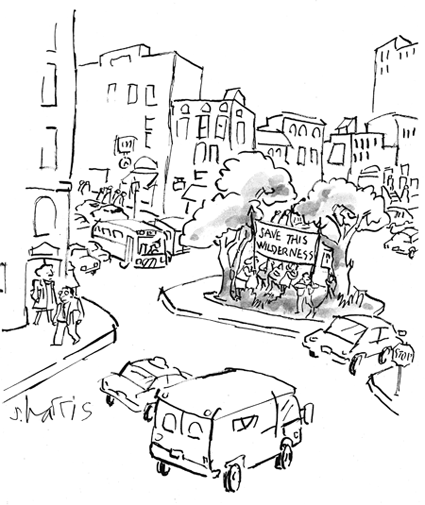 As the deserved applause rang to the credits, I tried to figure out how to formulate this sadness into a question. Eventually, as the Q&A session moved towards its end, I gave up on producing any pithy question, but resolved nonetheless to share the journey I had personally been taken on by watching the film.
And as I spoke, I realised that there is a better answer to that question – does all this actually achieve anything? – than the one spoken in the film. It is the one that is lived by the people portrayed in it.
As my mess of a question/journey/statement tumbled out, and this realisation took form, I found myself ending with a quote from Paul Wellstone, “If we don’t fight hard enough for the things we stand for, at some point we have to recognise that we don’t really stand for them.”
This seemed to ring true, with Emily James responding that she was glad that this question had been asked, and that that quote reflected her experience - that even if we were to lose our struggle for a future, we would want to have lived our present honestly as who we are. In my imagination, it seemed as though she were saying that we sometimes have to put our bodies on the line to save our souls.
As the deserved applause rang to the credits, I tried to figure out how to formulate this sadness into a question. Eventually, as the Q&A session moved towards its end, I gave up on producing any pithy question, but resolved nonetheless to share the journey I had personally been taken on by watching the film.
And as I spoke, I realised that there is a better answer to that question – does all this actually achieve anything? – than the one spoken in the film. It is the one that is lived by the people portrayed in it.
As my mess of a question/journey/statement tumbled out, and this realisation took form, I found myself ending with a quote from Paul Wellstone, “If we don’t fight hard enough for the things we stand for, at some point we have to recognise that we don’t really stand for them.”
This seemed to ring true, with Emily James responding that she was glad that this question had been asked, and that that quote reflected her experience - that even if we were to lose our struggle for a future, we would want to have lived our present honestly as who we are. In my imagination, it seemed as though she were saying that we sometimes have to put our bodies on the line to save our souls.
 The next question from the audience was a response to this, and a simple and interesting one - "so is activism therapy then?". The response from Emily was an enthusiastic "yes", and an explanation of how the process has helped many people to rediscover themselves and their joy in life, and of what an exceptionally supportive community there is among activists.
But I felt that this perhaps wasn't the most interesting thrust behind the question. To me the question hit home more as "so is activism only therapy then"? In other words, are you activists only pretending to be doing this to change the world, when really you're just trying to make yourselves feel better about the understanding that you can't?
And to this, as to all the best questions, the answer seems to be "er, yes and no. It's a bit more complicated than that"!
Because of course we act in order to change the world. And change it we do. Indeed, as a friend says, we cannot not change the world, whatever any of us choose to do. And as we change it, it changes us. And as it changes us, we change it. We are all activists.
And if the story we tell with these changes is one that we are proud to be telling, to the very core of our being, then activism is certainly therapeutic. But that kind of activism is not 'only therapeutic', it is spiritual. It is simply an expression of what we believe life to be for.
The next question from the audience was a response to this, and a simple and interesting one - "so is activism therapy then?". The response from Emily was an enthusiastic "yes", and an explanation of how the process has helped many people to rediscover themselves and their joy in life, and of what an exceptionally supportive community there is among activists.
But I felt that this perhaps wasn't the most interesting thrust behind the question. To me the question hit home more as "so is activism only therapy then"? In other words, are you activists only pretending to be doing this to change the world, when really you're just trying to make yourselves feel better about the understanding that you can't?
And to this, as to all the best questions, the answer seems to be "er, yes and no. It's a bit more complicated than that"!
Because of course we act in order to change the world. And change it we do. Indeed, as a friend says, we cannot not change the world, whatever any of us choose to do. And as we change it, it changes us. And as it changes us, we change it. We are all activists.
And if the story we tell with these changes is one that we are proud to be telling, to the very core of our being, then activism is certainly therapeutic. But that kind of activism is not 'only therapeutic', it is spiritual. It is simply an expression of what we believe life to be for.
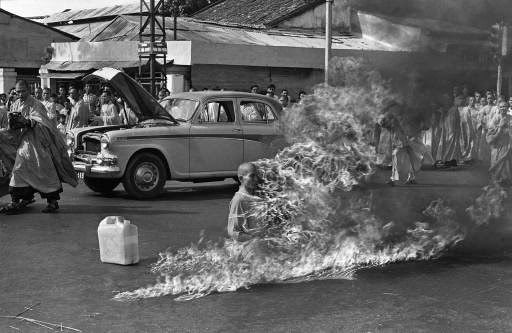 So the thought-provoking activist in the film was right - acting in some way to reflect our beliefs in our actions is indeed better than quietly dying inside, no matter what the external consequences. Perhaps Wendell Berry said it best,
So the thought-provoking activist in the film was right - acting in some way to reflect our beliefs in our actions is indeed better than quietly dying inside, no matter what the external consequences. Perhaps Wendell Berry said it best,
“Protest that endures, I think, is moved by a hope far more modest than that of public success, namely, the hope of preserving qualities in one's own heart and spirit that would be destroyed by acquiescence.”
But this is different from those times when activism is based on a lie - when acting is simply easier than admitting that you don't really believe that these actions can create the change you want to see. This kind of activism probably deserves to be challenged as 'only therapy', and a dangerous, deceitful kind of therapy at that.
...And of course there's only one reason why that audience question struck a painful chord for me, and prompted this rare blog post. It's because I've indulged in a bit of that in my time - ignoring the quiet inner voice that whispers the truth, telling me that the course I have chosen is futile, or counter-productive, or simply no longer a reflection of my highest truth. As Vanessa Spedding has it,
“It would be interesting if all campaigners did this: stopped, went home, and considered what we are really doing with our time and our ideas. Striving to be true to ourselves would seem to be a sensible first goal.”
This is exactly what I am trying to do at present, hence the lack of speaking, writing etc of late. I am very much in a listening phase, rather than a speaking one, and that feels very right. After last night's interesting excursion, I have just ordered a copy of the provocative Deep Green Resistance, and will also be keeping an eye on the blog of one lady who is trying to find something more effective altogether than resistance. I will let you know how we get on.
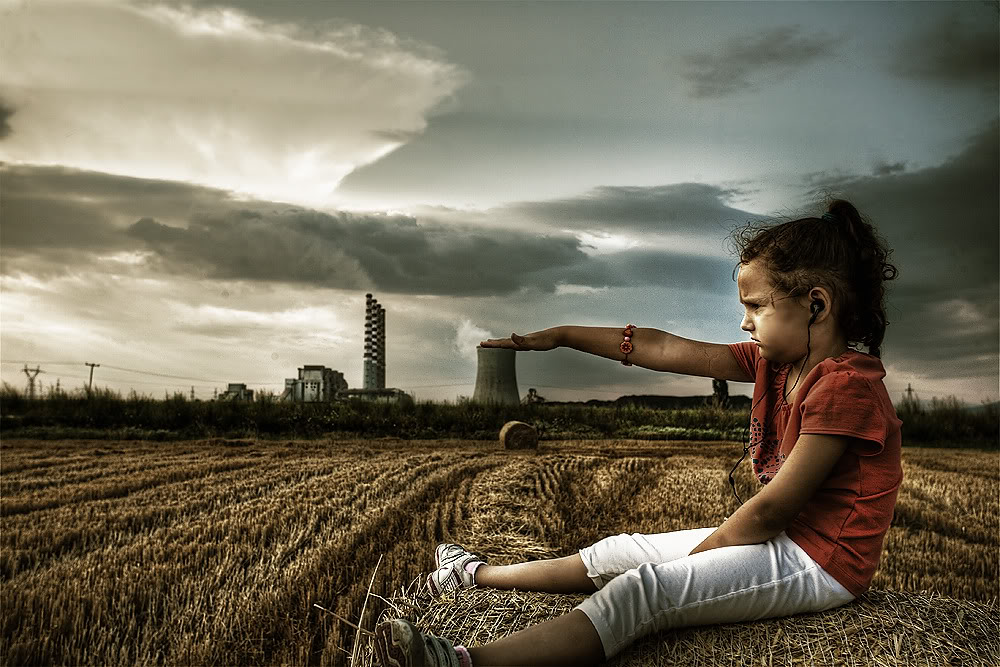





 As the deserved applause rang to the credits, I tried to figure out how to formulate this sadness into a question. Eventually, as the Q&A session moved towards its end, I gave up on producing any pithy question, but resolved nonetheless to share the journey I had personally been taken on by watching the film.
And as I spoke, I realised that there is a better answer to that question – does all this actually achieve anything? – than the one spoken in the film. It is the one that is lived by the people portrayed in it.
As my mess of a question/journey/statement tumbled out, and this realisation took form, I found myself ending with a quote from Paul Wellstone, “If we don’t fight hard enough for the things we stand for, at some point we have to recognise that we don’t really stand for them.”
This seemed to ring true, with Emily James responding that she was glad that this question had been asked, and that that quote reflected her experience - that even if we were to lose our struggle for a future, we would want to have lived our present honestly as who we are. In my imagination, it seemed as though she were saying that we sometimes have to put our bodies on the line to save our souls.
As the deserved applause rang to the credits, I tried to figure out how to formulate this sadness into a question. Eventually, as the Q&A session moved towards its end, I gave up on producing any pithy question, but resolved nonetheless to share the journey I had personally been taken on by watching the film.
And as I spoke, I realised that there is a better answer to that question – does all this actually achieve anything? – than the one spoken in the film. It is the one that is lived by the people portrayed in it.
As my mess of a question/journey/statement tumbled out, and this realisation took form, I found myself ending with a quote from Paul Wellstone, “If we don’t fight hard enough for the things we stand for, at some point we have to recognise that we don’t really stand for them.”
This seemed to ring true, with Emily James responding that she was glad that this question had been asked, and that that quote reflected her experience - that even if we were to lose our struggle for a future, we would want to have lived our present honestly as who we are. In my imagination, it seemed as though she were saying that we sometimes have to put our bodies on the line to save our souls.



Recent Comments